Is Spiritualism and Spirituality the Same Thing: Growth!
Spiritualism and spirituality, while related in their exploration of the non-physical realms, are not the same thing.
Spiritualism is a specific belief system or religion that focuses on communication with the dead through mediums, holding that spirits of the dead exist and have both the ability and the inclination to communicate with the living.
Spirituality, on the other hand, is a broader concept that pertains to a sense of connection to something larger than oneself, which can involve a search for meaning in life.
It is a more individual and personal practice that can encompass a wide range of beliefs and practices aimed at personal growth, a sense of peace, and a deeper understanding of life’s mysteries.
Here are some key distinctions in bullet points:
Spiritualism:
- A defined religion with specific practices.
- Focuses on communicating with spirits.
- Has organized groups and gatherings.
Spirituality:
- A personal, individual practice or perspective.
- Broader than any one religion or belief system.
- Can be practiced within or outside of traditional religious frameworks.
While spiritualism is centered around mediumship and the afterlife, spirituality is an individual’s quest for purpose and connection, transcending any one belief system
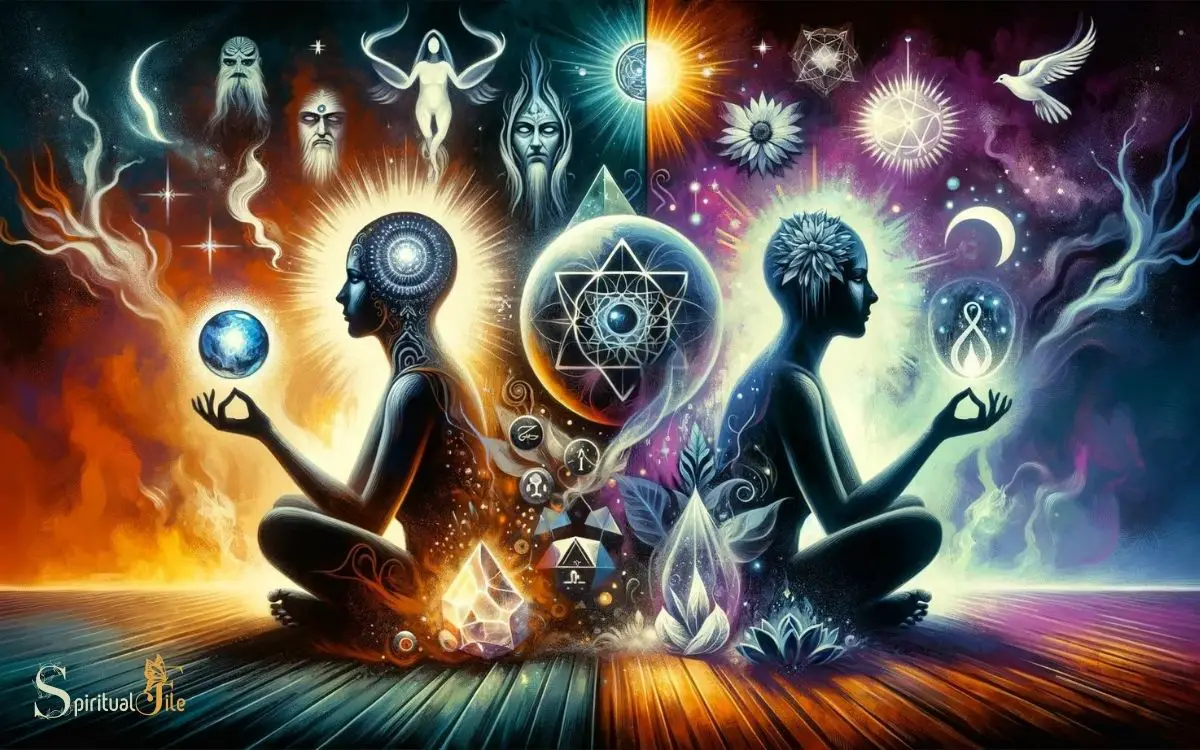
Key Takeaway
Defining Spiritualism and Spirituality
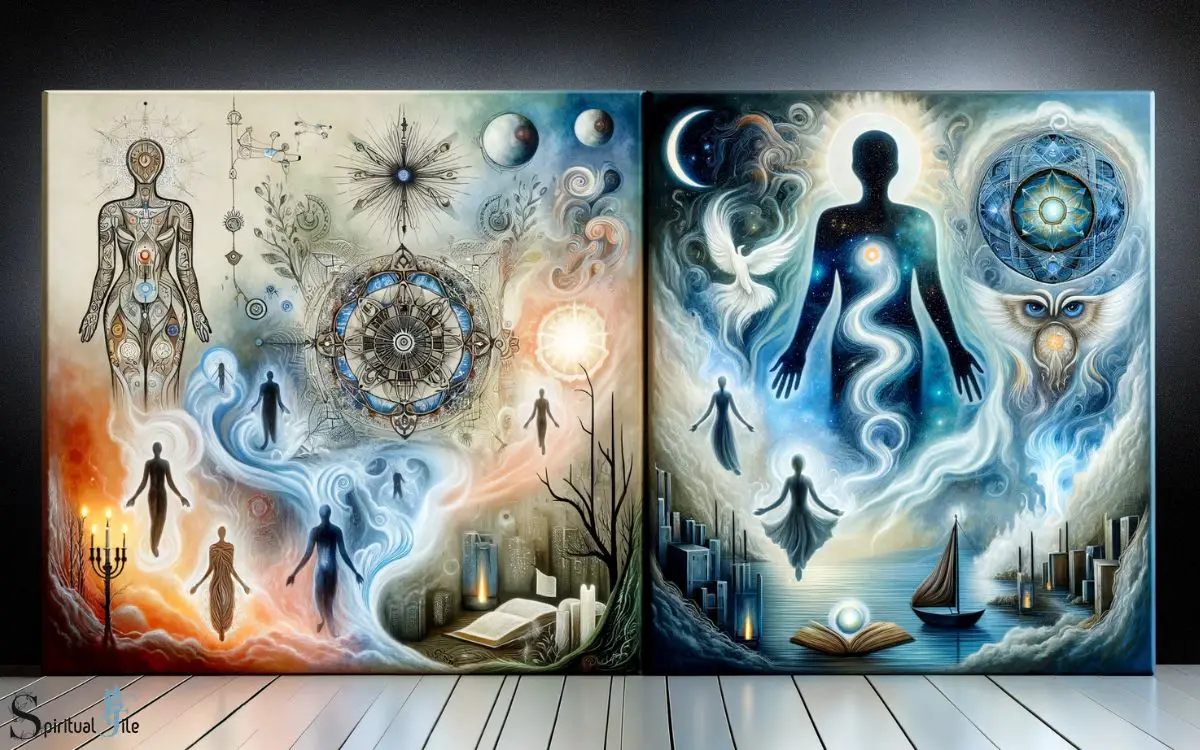
In my understanding, spiritualism and spirituality are often confused due to their similar-sounding names, but they actually represent different concepts.
Spiritualism typically refers to the belief in communication with the spirits of the dead, usually through a medium. It’s more focused on the afterlife and the existence of spirits.
On the other hand, spirituality is a broader concept that relates to the personal quest for understanding the meaning of life, connection to something bigger than oneself, and the development of personal beliefs and values.
It’s about finding inner peace, purpose, and harmony. While spiritualism is more specific and can be considered a subset of spirituality, spirituality encompasses a wider range of beliefs and practices.
Understanding these distinctions can help clarify the differences between the two concepts.
Origins and Historical Context
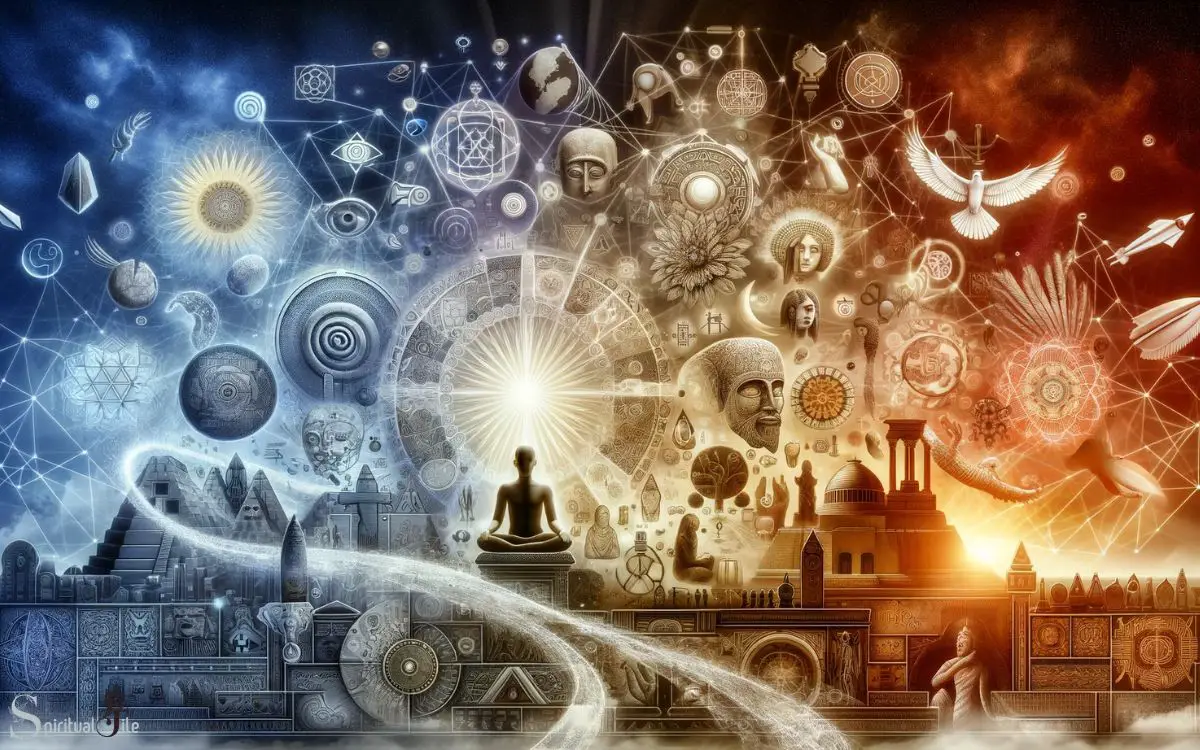
The historical origins of spiritualism and spirituality can be traced back to different periods and cultural contexts, shedding light on their distinct evolutionary paths.
| Spiritualism | Spirituality | Religious Roots |
|---|---|---|
| 19th century USA | Ancient civilizations | Various religions |
| Communication with the dead | Personal growth and inner peace | Mystical traditions |
| Mediumship and seances | Meditation and mindfulness | Connection to the divine |
| Emphasis on evidence of the afterlife | Emphasis on individual experience | Rituals and practices |
| Association with organized religion | Often independent of organized religion | Integrated with religious practices |
Understanding the origins and historical contexts of spiritualism and spirituality provides insight into their development and helps differentiate their unique characteristics.
Beliefs and Practices
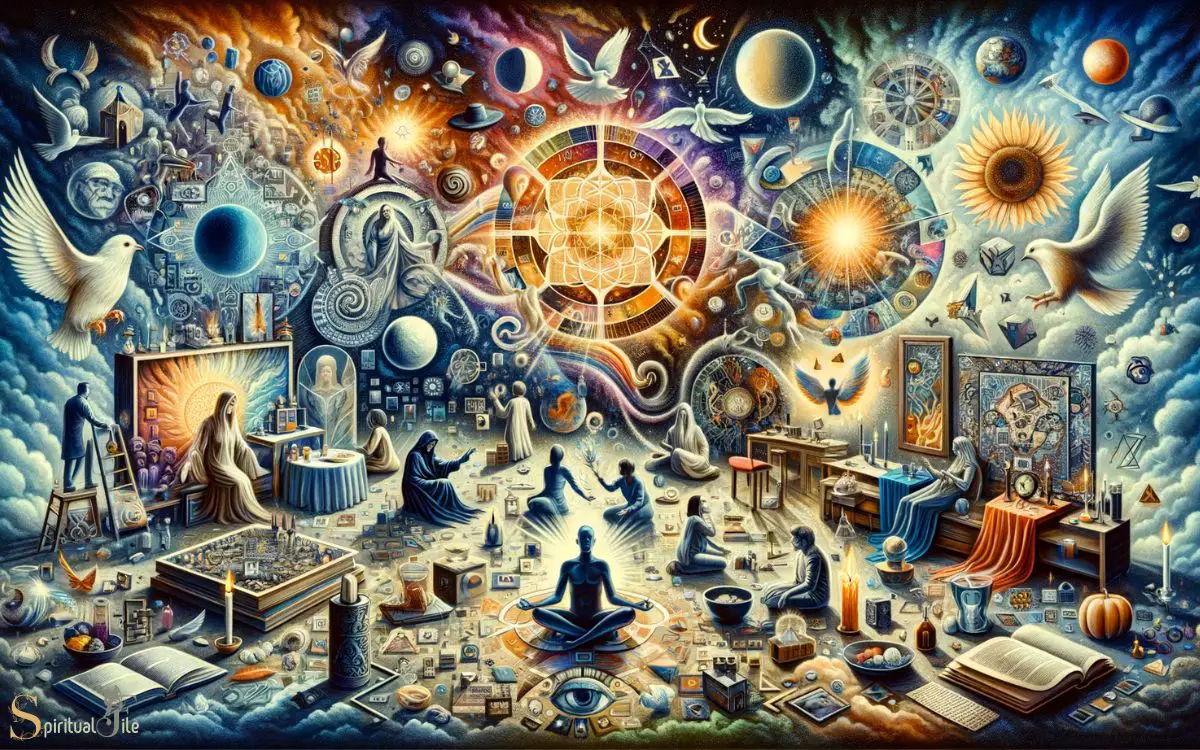
Exploring beliefs and practices is integral to understanding the differences between spiritualism and spirituality.
- Beliefs: Spiritualism often involves the belief in communication with the spirits of the dead, while spirituality encompasses a broader belief in the transcendent or higher power.
- Practices: Spiritualism may involve practices like mediumship and séances to connect with spirits, whereas spirituality often includes practices such as meditation, yoga, and mindfulness to foster inner peace and connection with the self.
- Impact: These beliefs and practices shape how individuals perceive and interact with the spiritual realm, influencing their worldview and daily lives.
Understanding the Differences
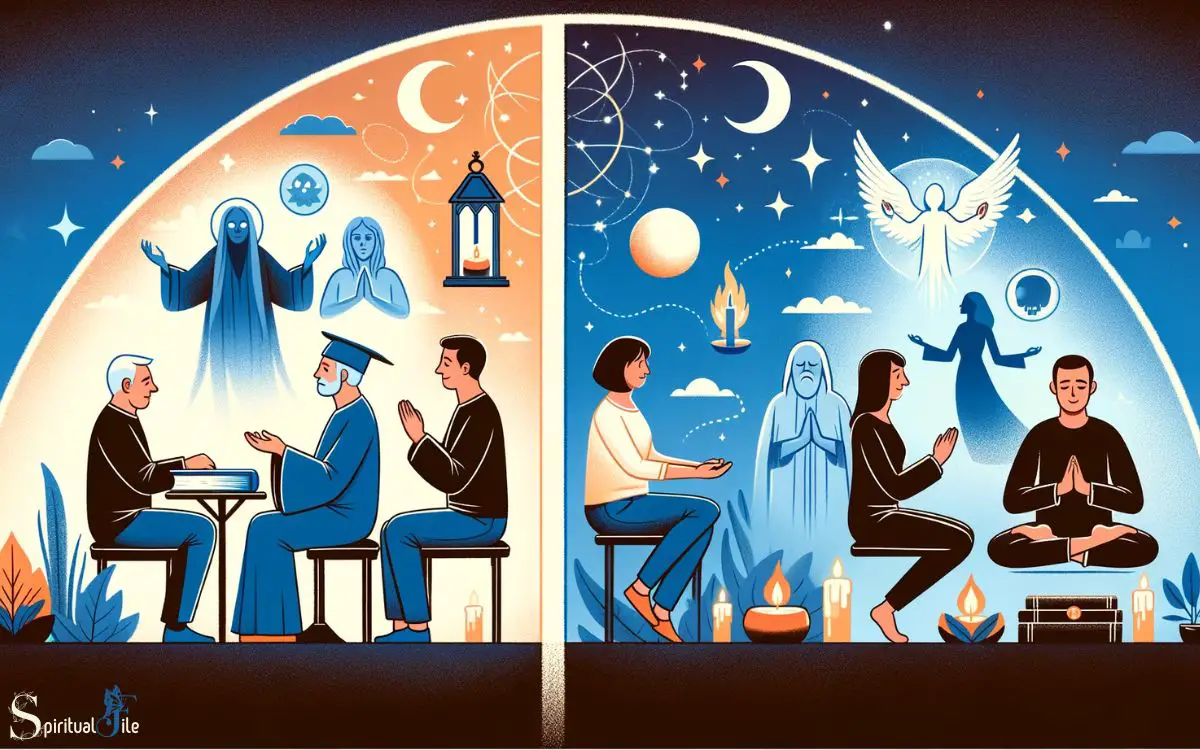
Beliefs and practices provide a clear distinction between spiritualism and spirituality, shedding light on their fundamental differences.
Spiritualism often involves the belief in communication with the spirits of the dead through a medium, while spirituality focuses on personal growth, connection to something greater than oneself, and seeking meaning in life.
The practices associated with spiritualism may include séances and attempts to communicate with the deceased, whereas spirituality often involves meditation, mindfulness, and self-reflection.
Spiritualism tends to be more structured and may involve specific rituals, while spirituality is often more fluid and adaptable to individual beliefs and experiences.
Understanding these differences can help individuals discern which path resonates most with their own beliefs and values.
Can Motherhood be Considered a Form of Spiritualism or Spirituality?
Many mothers experience long days spiritual motherhood as they navigate the challenges and joys of raising children. The act of nurturing and guiding another human being can be a deeply spiritual experience, as it requires patience, love, and selflessness. Motherhood can be considered a form of spirituality for those who embrace its transformative power.
Embracing Spiritual Paths
How can I integrate spiritualism and spirituality into my daily life, and what benefits can this bring? Embracing spiritual paths has significantly enriched my life, offering a sense of purpose and inner peace.
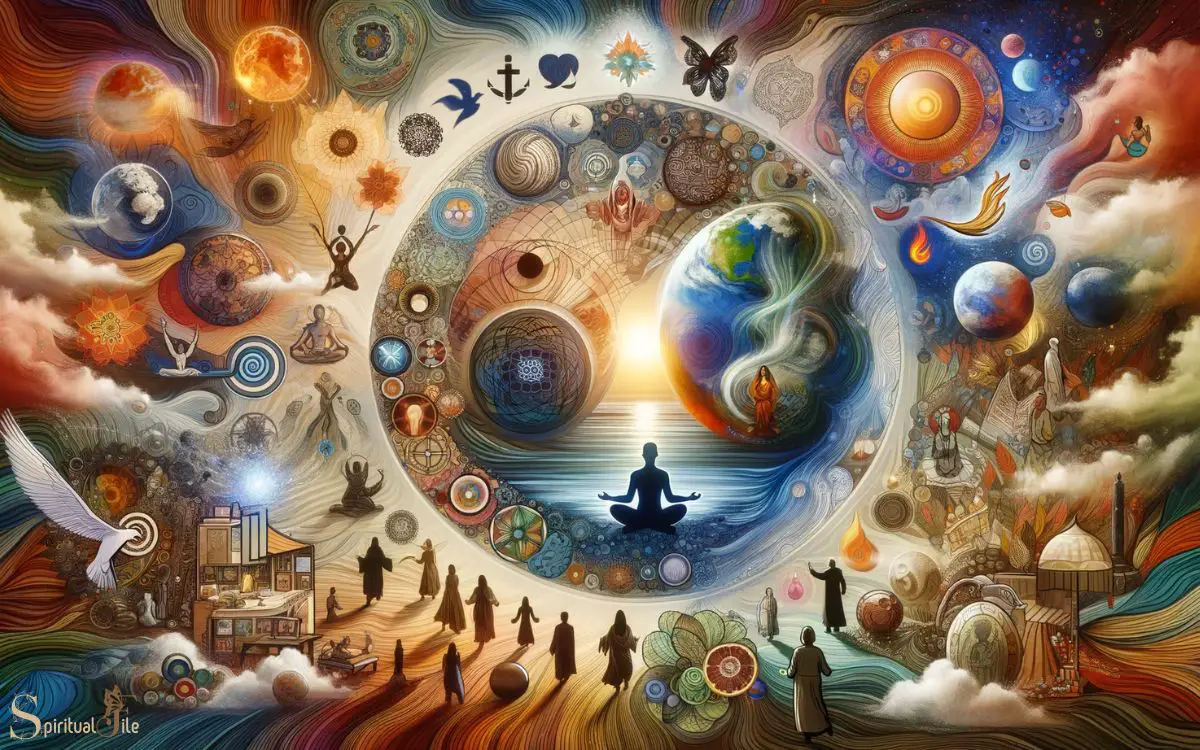
Here are a few ways to integrate spiritualism and spirituality into daily life:
- Mindfulness Practice: Taking time for meditation or simply being present in the moment can bring clarity and reduce stress.
- Connecting with Nature: Spending time outdoors and appreciating the beauty of the natural world can bring a sense of awe and grounding.
- Acts of Kindness: Engaging in acts of kindness and compassion towards others can foster a sense of interconnectedness and fulfillment.
- Seeking Knowledge and Growth: Exploring spiritual texts, teachings, and engaging in self-reflection can lead to personal growth and a deeper understanding of the self and others.
Conclusion
Well, after diving into the deep and meaningful world of spiritualism and spirituality, I’ve come to the conclusion that they’re like distant cousins at a family reunion – similar, but with their own unique quirks.
Whether you’re into séances and mediumship or meditation and mindfulness, it’s all about finding your own path to enlightenment. So, embrace your inner spirit and go forth on your spiritual journey, my friends. Namaste and all that jazz.






